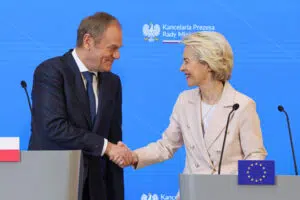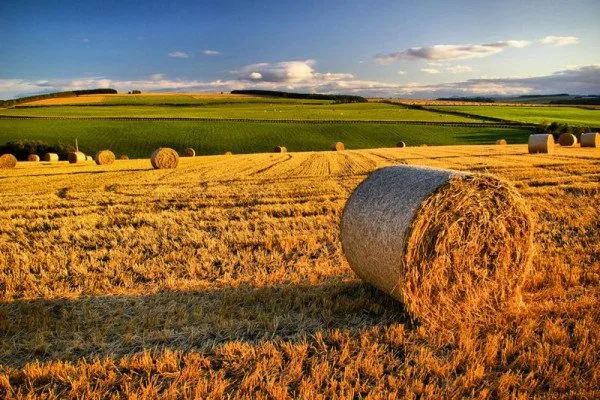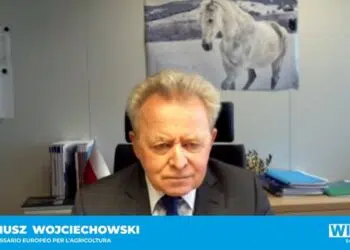Brussels – The European Commission’s proposals to amend the Common Agricultural Policy (CAP) arrive without press conferences or impact assessments, following protests in recent months across the continent and, particularly in Brussels, with two challenging rallies during February. “With these proposals, the Commission aims for well-targeted adjustments” to the Regulations on the strategic plans of the CAP “to address some implementation difficulties,” reads the text published today (March 15) by the von der Leyen Cabinet, which traces the lines already drawn by the informal document of last February 22.
Although the Commission is keen to emphasize that it “intends to maintain the overall orientation” of the CAP agreed by the parliament and the council in 2021 and entering into force in 2023 (with €336 billion until 2027, about 31 per cent of the EU’s multiannual budget), the changes focus on reducing administrative burdens on farmers, providing flexibility to national administrations for implementation, and balancing cross-compliance requirements with voluntary schemes that incentivize environmentally friendly practices. “With a view to the political urgency of tabling this proposal, which aims to respond to a crisis situation in EU agriculture, no impact assessment has been carried out”, but what the EU executive presented today is based on the “wide range of suggestions and proposals” that have come from major European agricultural organizations, from EU Council meeting February 26 and the European Parliament’s Committee on Agriculture and Rural Development (AGRI) for “urgent action to ease administrative burdens for farmers” and for “a stable and coherent policy framework with further long-term reforms.”
After the temporary waiver through 2024 to uncultivated land, the Commission proposes to eliminate completely the allocation of “a minimum part of arable land to non-productive areas” from standard 8 of the “Good Agricultural and Environmental Conditions” (GAEC), such as fallow land,” while maintaining existing landscape features on their land.”
Member states are instead required to “establish an eco-scheme” offering support to farmers “to maintain a portion of arable land in a non-productive state or to create new landscape elements” (such as hedges or trees). Farmers will be “specifically rewarded for these non-productive areas that are beneficial to biodiversity on farmland and rural areas more generally.” The Twenty-Seven countries will also be able to provide “specific exemptions” from the rules on GAEC standards 5, 6, and 7 (tillage management, ground cover, and fallow land) for situations that “are likely to be contrary to their objectives” such as in the case of specific soil and subsoil conditions. More specifically on crop rotation (standard 7), the Commission proposes to retain it but allow member states to “add the possibility of meeting this requirement through crop diversification,” a flexibility that should allow farmers “affected by regular drought or excessive rainfall” to meet the condition “in a way that is more compatible with agricultural realities.”
Among the most significant changes is the proposal to exempt farms under 10 hectares from controls and penalties, a measure that “affects 65 per cent of beneficiaries” of the CAP but “only 10 per cent of the total agricultural area,” the Commission recalls. “The aim is to alleviate the administrative burden related to controls, which is higher for small farms than for larger farms.” In other words, in addition to the general flexibilities on BCAA, burden relief for small farmers with a maximum farm size of no more than 10 hectares of agricultural area will ensure that they do not have to “be checked for compliance with conditionality requirements,” since the exemption “would not significantly hinder the role of compliance requirements in contributing to climate and environmental objectives.” In addition, it is also proposed to increase the number of requests for amendments to the Strategic Plan of the CAP from one to two per year: “This is necessary to deal more quickly with the changing situations of farmers, including those caused by adverse climatic events,” the commission specifies.
Regarding farmers’ remuneration and their position in the food supply chain, three paths will be followed. First, the commission will launch an observatory on production costs, margins, and business practices in the agrifood supply chain, with representatives of all food supply chain sectors and representatives of member states and the commission, whose first meeting “is scheduled for the summer.” Secondly, strengthening the rules applicable to contracts that farmers enter into with the food industry or retail buyers is proposed through new options to the Regulation establishing a common organization of the markets in agricultural products (CMO) and cross-border enforcement of rules against unfair trade practices. Finally, the commission will conduct a “thorough evaluation” of the Directive on Unfair Trade Practices in the Food Supply Chain in force from 2021, with the first report delivered in the spring of 2024 and a more detailed evaluation to be presented in 2025 along with legislative proposals “if appropriate.”

During a phone call between the chairwoman of the European Commission, Ursula von der Leyen, and the Polish prime minister, Donald Tusk, the number one of the Union’s executive also anticipated that a proposal to “introduce restrictions on the import of agricultural products from Russia” will be presented shortly. The Berlaymont “is considering” the new imposition, as emerged during this afternoon’s telephone discussion between the two leaders of the European People’s Party family on “further measures to address the situation on the grain market and the import of grain from Russia.” Chairwoman von der Leyen herself linked the situation of “increasing uncertainties” that farmers are facing to “geopolitical events such as Russia’s war of aggression on Ukraine.” For this reason, as “direct response to requests received from farmers’ organizations in and outside Poland“, the Commission put forward today’s proposals to “apply some standards in a way that is more compatible with the every-day realities that farmers face on the ground.”
English version by the Translation Service of Withub








